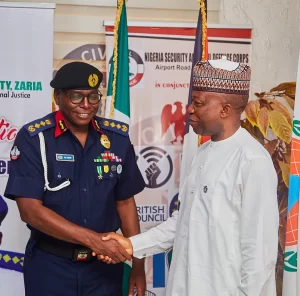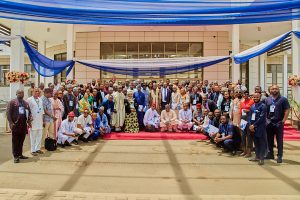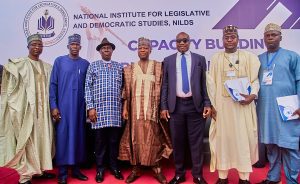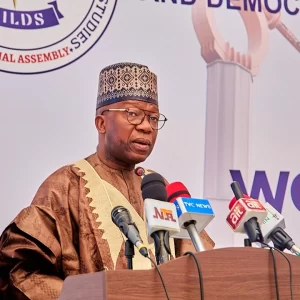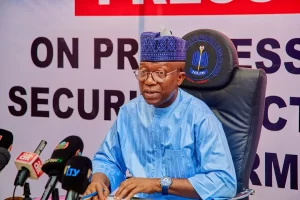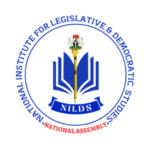NILDS, UN Women move to bridge gender gaps in Nigeria’s security sector
National Institute for Legislative and Democratic Studies NILDS, and the UN Women have called for amendments to legislation bordering on security to allow more women’s participation in security management in Nigeria.
Director General, NILDS, Prof Abubakar O.Sulaiman made the call on Thursday in Abuja at a news conference.
According to him, there was a need for a deliberate move to increase women’s involvement in the country’s security sector.
He expressed hope that the current national assembly under the leadership of Godswill Akpabio has promised to give adequate attention to all bills and policies meant to promote gender inclusion
“Indeed, Nigeria’s security sector institutions are major actors not only in the prevention and response to security issues in Nigeria but also to strategic conflict resolution and peace building initiatives.
“While these security sector institutions strive to achieve their mandates over the years, huge gender gaps are visible in their policies and operational procedures at all levels, as well as their enabling legislations.
“Yet, ensuring women’s meaningful representation in the security sector is critical to building an inclusive, responsive, and accountable security sector that reflects diversity of the community it serves and better respond to their needs.
“This has been increasingly identified as a key strategy and supported by global normative frameworks, including the United Nations Security Council Resolution (UNSCR) 1325 (2000), among other international instruments.
“As a result of this, there is a need to review the security sector institution’s legislation to become more gender-responsive
“It is against this backdrop that I am pleased to inform you all that NILDS, with the support of the UN Women is implementing the Enhancing Gender Responsive Security Operations and Community Dialogue Project II,” he said.



